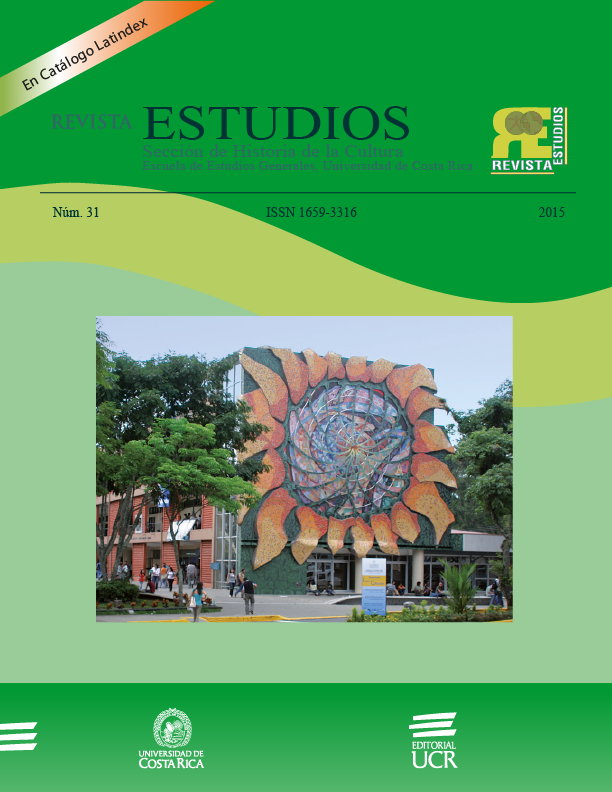Abstract
Gustavus Vassa was an enslaved African man who, after buying his freedom, lived in England in the late 18th century. He published an autobiography in 1789, aiming to raise awareness in its readers of the sorrows that slavery meant and the necessity of eradicating it. Many scholars who have researched the life and work of Vassa have concluded that his autobiography was used as a political instrument in the abolitionist campaign led by the Committee for the Abolition of the Slave Trade. This article is based on these characterizations in order to determine how Gustavus Vassa, despite the fact that he was African, a former slave and had been only living in England for a short period of time, managed to introduce his autobiography to the British Parliament and turn it into a literary carrier of the abolitionist message. This question was answered by researching the strategies and conditions that allowed the diffusion of the book during the delimited period: 1780, the decade when Vassa began to take part in the abolitionist campaign until 1807, when the act to abolish the slave trade was passed.References
Barchas, Janine. “The Frontispiece: Counterfeit Authority and the Author Portrait”. En Janine Barchas, Graphic Design, Print Culture, and the Eighteenth-Century Novel. Cambridge: Cambridge University Press, 2003.
Beckles, Hilary, Verene Shepherd y Rina Cáceres Gómez (ed.), “Del olvido a la memoria no. 4: Las voces de los esclavizados”. San José: Oficina Regional de la UNESCO para Centroamérica y Panamá, 2008. http://unesdoc.unesco.org/images/0018/001838/183853s.pdf
Boulukos, George E. “Scripture, Enlightenment, and the Invention of Race: Colin Kidd's "The Forging of Races"”. The Eighteenth-Century vol. 51, no. 4 (invierno 2010): 491 – 495. http://www.jstor.org/stable/41468117
Boulukos. George E. “Olaudah Equiano and the Eighteenth-Century Debate on Africa”. Eighteenth-Century Studies vol. 40, no. 2 (invierno 2007), pp. 241 – 255. http://www.jstor.org/stable/30053452
Bugg, John. “The Other Interesting Narrative: Olaudah Equiano’s Public Book Tour”. PMLA vol. 121, no. 5 (Octubre de 2006): 1424 – 1442. http://equianosworld.tubmaninstitute.ca/sites/equianosworld.tubmaninstitute.ca/files/BUGG%20The%20Other%20Interesting%20Narrative%20Equiano%20book%20tour.pdf
Burke, Tim. “Humanity Is Now The Pop'lar Cry": Laboring-Class Writers And The Liverpool Slave Trade, 1787-1789”. The Eighteenth Century, Vol. 42, No. 3 (otoño 2001): pp. 245-263. http://www.jstor.org/stable/41467882
Carretta, Vincent. “Property of Author”. En Genius in bondage: literature of the early Black Atlantic, editado por Vincent Carretta y Philip Gould, 130 - 150. Kentucky: The University Press of Kentucky, 2001. http://books.google.co.cr/books?id=FLSk4UH7URAC&lpg=PP1&dq=genius%20in%20bondage&hl=es&pg=PP1#v=onepage&q=genius%20in%20bondage&f=false
Carretta, Vincent. Equiano, the African: Biography of a Self-made Man. Georgia: University of Georgia Press, 2005.
Drescher, Seymour. “Public Opinion and Parliament in the Abolition of the British Slave Trade”. Parlamentary History 26 (2007): 42-65.
Dror Wahrman, “National Society, Communal Culture: An Argument about the Recent Historiography of Eighteenth-Century Britain”, Social History vol. 17, no. 1 (enero, 1992): 44, http://www.jstor.org/stable/4285987
Equiano, Olaudah o Gustavus Vassa, el africano. The Interesting Narrative of the Life of Olaudah Equiano, or Gustavus Vassa, The African, 9na edición. Londres: Publicado por el autor, 1794. http://books.google.co.cr/books?id=4GM6AAAAcAAJ&hl=es&pg=PP1#v=onepage&q&f=false
Ferguson, Moira. “British Women Writers and an Emerging Abolitionist Discourse”. The Eighteenth Century, vol. 33, no. 1 (primavera 1992): pp. 3-23. http://www.jstor.org/stable/41467763
Green, James. “The Publishing History of Olaudah Equiano’s Interesting Narrative”, Organization of American Historians (1995).
Ito, Akiyo. “Olaudah Equiano and the New York Artisans: The First American Edition of “The Interesting Narrative of the Life of Olaudah Equiano, or Gustavus Vassa, the African”, Early American Literature (University of North Carolina Press) 32, no. 1(1997): 82- 101. http://jstor.org/stable/25057074
Lovejoy, Paul E. “Autobiography and Memory: Gustavus Vassa, alias Olaudah Equiano, the African”. Slavery and Abolition 27, n° 3 (diciembre de 2006): 317-347, http://www.yorku.ca/nhp/equiano/articles_and_debates/Lovejoy%20Vassa%20Slavey%20and%20Abolition.pdf
Lovejoy, Paul E. “Olaudah Equiano or Gustavus Vassa – What’s in a Name?” Atlantic Studies 9, n° 2 (junio de 2012): 165-184, http://www.tandfonline.com/doi/abs/10.1080/14788810.2012.664957#.VcreBPl_Oko
Mtubani, Victor. “The Black Voice in Eighteenth-Century Britain: African Writers against Slavery and the Slave Trade”. Phylon (Clark Atlanta University) 45, no. 2 (segundo cuatrimestre, 1984): 85 – 97, http://www.jstor.org/stable/274471
Oldfield, J.R. “The London Committee and Mobilization of Public Opinion Against the Slave Trade”. The Historical Journal (Cambridge University Press) 35, no. 2 (junio de 1992): 331 – 343. http://www.jstor.org/stable/2639671
Wahrman, Dror. “National Society, Communal Culture: An Argument about the Recent Historiography of Eighteenth-Century Britain”. Social History vol. 17, no. 1 (enero, 1992): 68. http://www.jstor.org/stable/4285987

